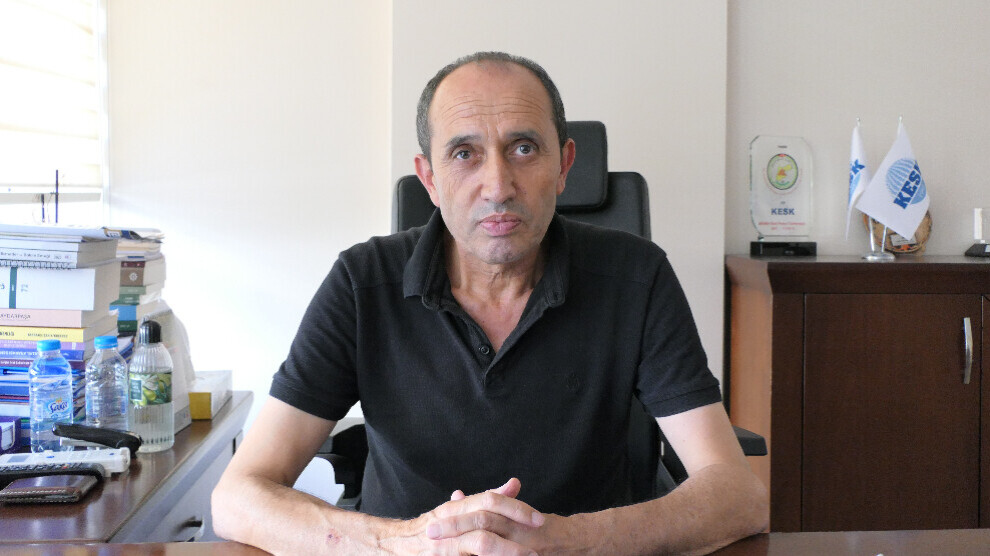KESK co-chair says there is a need for a new economic model to counter current crisis
KESK co-chair Mehmet Bozgeyik said that there is a need for a new economic model that favours democracy, ecology and labor.
KESK co-chair Mehmet Bozgeyik said that there is a need for a new economic model that favours democracy, ecology and labor.

Public Workers Confederation Unions (KESK) co-chair Mehmet Bozgeyik spoke to ANF about the economic crisis in Turkey.
Pointing out that both public workers and the public are getting poorer, especially in this process where inflation has reached 150 percent, Bozgeyik said: “The Turkish Statistical Institute (TUIK) is manipulating the inflation figures. By showing the figures low with the instructions it received, it not only lowers the rates that will be reflected in the wages of public workers, but also ensures that the minimum wage is not increased. Research conducted by ENAG and KESK AR shows that inflation has exceeded 150 percent. For us, the main indicator is the continuing increase in the producer price index. Especially if the inflation in food and transportation exceeds 100 percent, this will further increase poverty.”
Turkey is in recession
Reminding that the Central Bank reduced the interest rate from 14 percent to 13 percent, Bozgeyik said that the policy of lowering and maintaining the interest rate will directly affect the 2023 economic program and budget. Bozgeyik said: “As a result of this, poverty will deepen, borrowing will increase, and the depreciation of the Turkish Lira (TL) will continue. The Central Bank also updated the exchange rate calculation and stated that the dollar would reach 19 TL by the end of December. According to the statements made by independent economists, the dollar will exceed 20 TL. The Turkish currency is losing more and more value every passing day. Turkey's economy has entered a recession."
The budget doesn’t go to investment and employment
Budgets are not allocated to investment and employment due to war and security policies, said Bozgeyik, adding that education and health are becoming inaccessible because resources are not allocated to education, health and local administration. With the increase in natural gas and basic consumption, in autumn and winter, the problems of people will increase. We are facing a housing crisis. Despite the excess of one million housing units, we have difficulty finding a house due to the excessive increases in rents. We find it difficult to pay the rent. An average public worker has to spend 70 percent of his wages on the rent in metropolitan cities.”
Emphasizing that the new administration that will replace the AKP-MHP alliance will not be able to solve the crises with reforms, Bozgeyik continued: “We are facing problems in an ideological sense. There is no deep divergence between the economic policy implemented by the People's Alliance and the economic policies of the opposition parties that will replace it. There are various discourses such as stopping privatizations and expropriating privatized institutions. The main problem is that the basic capitalist economic policies, which are based on profit, destruction of the environment and nature, and increasing their surplus value by exploiting workers. These need to be eliminated.
There is a need for a new economic model in which democratic mass organizations, professional organizations and labor organizations have a say here, participate in decision-making processes in production, and plan production and consumption processes together. All of this is possible with the implementation of an economic program in favour of ecology, society and the people. The process ahead will be chaotic. In order to get out of here, both we public workers and workers, the poor, peasants, students and women must all wage a common social struggle. If we do not do this, poverty will increase and we will face more authoritarian and oppressive policies. We will not be able to breathe; we will get to the point of not being able to leave our house. If we do not want to end like this, it is necessary to start an all-out struggle mobilization.”